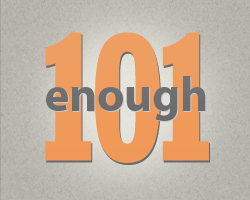
Editor’s Note: This post is a brief history, intended to provide a contextual background for understanding the complex issues that the Enough Project works on. It is part of the series Enough 101.
Despite the various peace deals and an official end to hostilities, fighting continued after the end of the Second Congo War, especially in eastern Congo. Tutsi rebel leader Laurent Nkunda led a campaign of attacks, and Joseph Kony’s Lord’s Resistance Army kidnapped and killed hundreds of civilians.
In 2006 Joseph Kabila held (and won in a run-off) the country’s first elections in 46 years amid outbreaks of election-related violence.
The U.N. Security Council unanimously agreed on November 20, 2006 to send 3,100 more peacekeeping troops to the Congo, adding to the mission of 17,000 peacekeepers already in the country.
A total of between 1.4 million and two million people have been displaced since 2007 in the North Kivu province, according to the U.N. World Food Program.
In August 2009, U.S. Secretary of State Hillary Clinton visited Goma, one of the centers of violence in eastern Congo, and promised $17 million aid for victims of sexual violence. However, through 2010 multiple incidences of mass rapes were reported, with both rebels and Congolese Army accused as the perpetrators.
In October 2010, the U.N. reported that the mass killings of Hutus in the Congo between 1993 and 2003 may constitute "crimes of genocide," implicating Rwanda, Uganda, Burundi, Zimbabwe, and Angola.
On November 28, 2011, amid chaotic preparation and outbreaks of violence, Congo held its first locally managed elections.
In the lead-up to the elections, current President Joseph Kabila changed the constitution to boost his own chances, and international monitors reported that election fraud was rife and a timely election unlikely.
Despite the many problems, the elections proceeded as scheduled. Reports of fraud are widespread, and 18 people reportedly died and over 100 were injured in election-related violence.
On December 2, 2011, the U.N. Security Council released a statement, urging: “[C]andidates should maintain a calm and peaceful environment, exercise restraint, await the results that will be declared in accordance with national constitutional procedures and resolve their differences peacefully, through the established legal and mediation mechanisms, including the National Mediation Committee.”
Ballots are currently being counted, and results are supposed to be announced on late today, December 6. Text messaging has been canceled from December 4 onwards in order to prevent people from mobilizing protests.
For more on the Congo’s history, read the previous Enough 101 posts: "Congo: The First and Second Wars, 1996-2003," and “Congo: Colonialism through Dictatorship, 1400s-1997.”
For more information and to see the sources used in this post, check out the Enough Project's Congo Pinterest Board.

